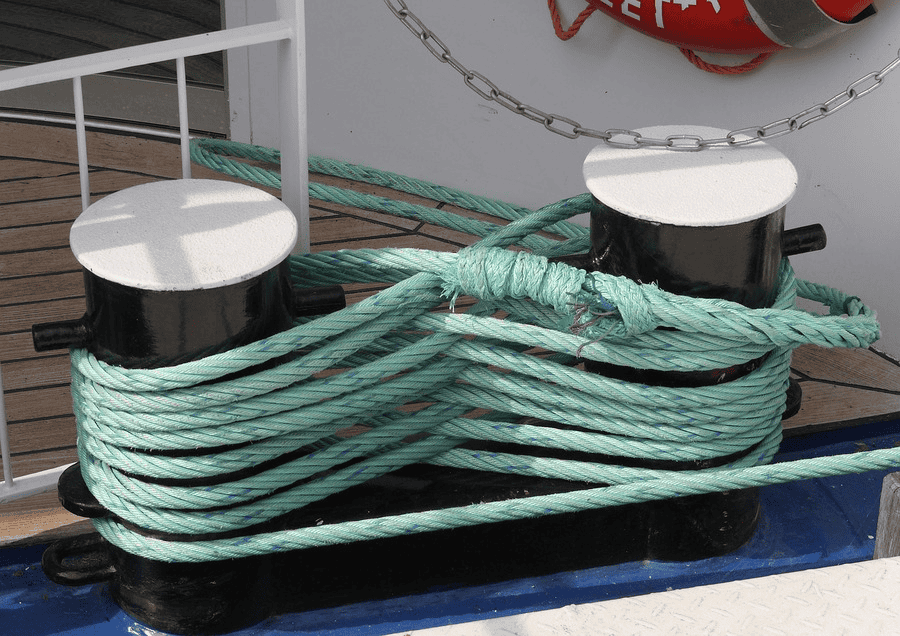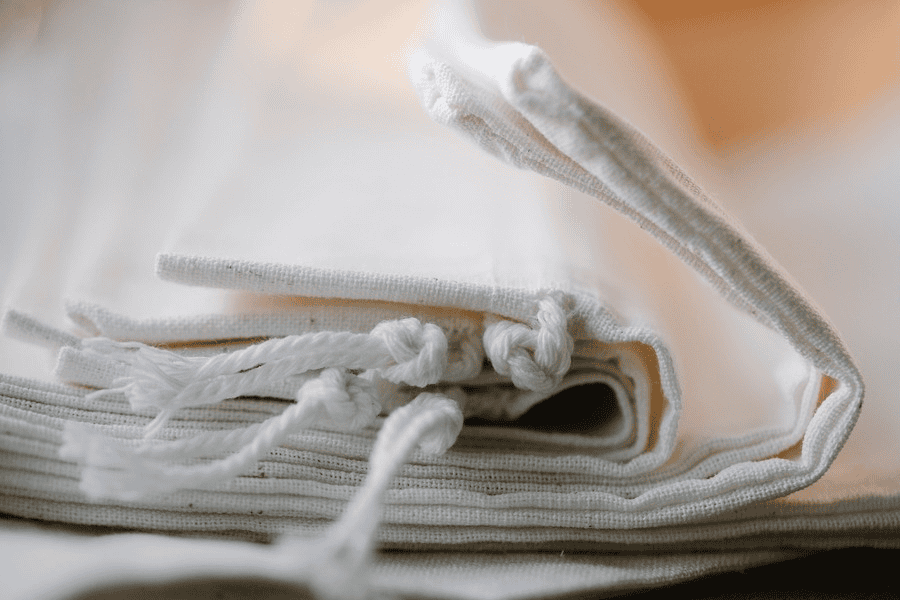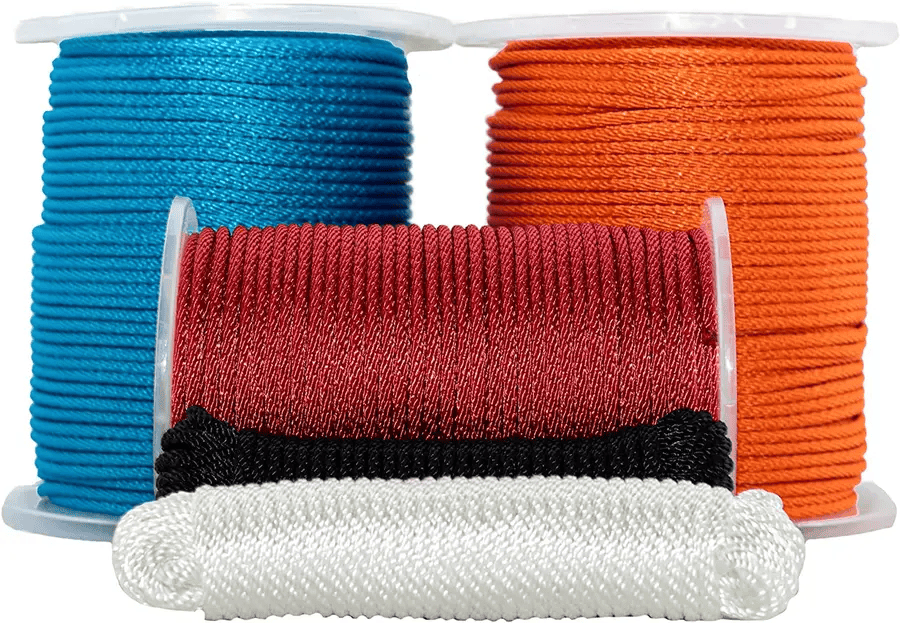
Source: Pixabay
At first glance, polyester and nylon rope may seem similar, mainly if you only base them on their physical appearance. You may even think that you can use one for the other. You may also wonder if polyester and nylon rope are the same.
To answer your question, a polyester rope differs from a nylon rope. Both ropes are made of different types of synthetic fabrics. Polyester ropes are made of polyethylene material, while nylon ropes are made of polyamide material.
Aside from their materials, their production processes also vary. Due to these differences, both ropes have different properties. Because of this, there are situations where one type of rope would be more valuable than the other.
You can learn more about the differences between nylon and polyester ropes in this article. You can also read more to find what similarities they share and what other standard ropes are available.
What Are the Differences Between a Polyester Rope and a Nylon Rope?

Source: Pixabay
Since a polyester rope and a nylon rope are made with different synthetic fibers, these two ropes have a variety of differences. By learning their differences, you can plan which is best to use since nylon and polyester ropes are ideal for different situations.
The main differences between polyester and nylon rope are listed here, from their strength under stress to their elasticity.

Source: Pexels
Nylon ropes offer better flexibility.
Compared to polyester rope, nylon rope has better elasticity. It has a high stretch factor, so it can hang straight even when its ends are pulled apart. It can stretch better, and extending the rope would not affect its shape or size.
On the other hand, the polyester has low stretching ability. You could only stretch it up to 10% of its length. Otherwise, it can affect the rope’s shape, strength, and durability.

Source: Pexels
Polyester ropes perform better in wet applications.
Due to their different materials, polyester and nylon rope work differently when wet. In this case, the polyester rope works better.
Polyester ropes do not absorb water and retain their original strength even when submerged. Meanwhile, nylon ropes absorb water and start sagging after taking a particular water threshold.

Source: Pexels
Nylon ropes work better with shock and stress.
While both nylon rope and polyester rope are famous for being solid ropes, they work differently under stress and shock.
The nylon rope has high tensile strength and can survive under dynamic load applications. On the other hand, polyethylene rope cannot handle shocks as well as nylon rope.

Source: Pexels
Polyethylene ropes handle hotter temperatures better.
Both nylon ropes and polyethylene ropes do not work well when it comes to extremely high temperatures. However, there is still a difference in the temperature that each cord can handle.
Nylon ropes start burning at 250℉, while polyester ropes start burning at 275℉. This gap can make a difference if you plan to use the rope in a hotter location.
What Are the Similarities Between a Polyester Rope and a Nylon Rope?

Source: Pixabay
Since both the polyester rope and the nylon rope come from synthetic fibers, they also share several similarities. These similarities range from their resistance to most chemicals, abrasion, and mildew to their robust and durable compositions.
In more detail, here are some of their similarities.
Mildew-resistant
Both nylon and polyester ropes share many benefits. Their resistance to mildew is one of them.
These two products have the ability to fight against microbes and bacteria. You would not have to worry about molds growing on your ropes, especially if you left them in a moist location.
Abrasion-resistant
One reason why both nylon and polyester ropes are popular is because they can withstand wear and tear.
Because both items are made with sturdy synthetic materials, they have good abrasion resistance. Even if you use them as components for industrial tools, you would not need to worry about them breaking.
UV-resistant
Both nylon and polyester ropes are perfect for outdoor activities because they provide good resistance to UV rays. These products can absorb UV rays well and serve excellent sun protection.
This property is handy, especially if you plan to use your ropes for outdoor activities.
Chemical-resistant
Both nylon and polyester ropes were made to be resistant to most chemicals. They can withstand chemical exposure better than other types of ropes.
Aside from usual chemicals and toxins, these ropes also react better to other substances such as oil and gasoline.
Durable
Nylon and polyester ropes are reliable for heavy-duty jobs because they are sturdy and durable. While their strength varies, both ropes can carry much weight without breaking.
They can also both withstand rough uses, making them very practical.
Is Nylon Rope Better Than Polyester Rope?

Source: Pexels
Nylon ropes are better than polyester ropes depending on their application. Since both ropes have a variety of strengths and weaknesses, the answer depends on what you will use the rope for.
If your rope will stretch out, the nylon rope is better. It is also the better choice if the rope needs to be resistant to shocks.
On the other hand, the polyester rope is better for applications that involve water. It is also a more suitable fit if you need to consider higher temperatures.
Where Can You Use Nylon Ropes and Polyester Ropes?

Source: Pixabay
You can use nylon and polyester ropes for outdoor settings, industrial applications, and transportation.
You can use nylon ropes for manufacturing and towing jobs. It is also best for other settings where you need more elasticity, such as mountain climbing.
Polyester ropes, on the other hand, work best in marine settings. Because of its minimal water absorption, it is often used for mooring and boating.
What Other Types of Rope Are Available?

Source: Pixabay
Aside from nylon and polyester ropes, other types of ropes are also available. You can easily categorize them depending on their material and whether they come from synthetic or organic fibers.
Each type of rope also comes with its specific strengths and weakness. There are also a variety of situations where the ropes fit best.
Here is a list of other ropes that you can encounter.

Source: Pexels
Cotton ropes
As their name suggests, cotton ropes come from organic cotton fibers. Because it comes from a natural material, cotton ropes are highly sustainable.
However, unlike nylon and polyester ropes, people rarely use cotton ropes for industrial applications. Instead, they are often used for decorations.

Source: Pexels
Jute ropes
Jute ropes are another type of organic rope. They are made with jute fibers from plants of the same name.
Jute ropes are also only sometimes used for heavy-duty jobs. Instead, they are more famous for their crafting uses. Jute ropes are often used for gift wrappers, bracelets, and similar projects.

Source: Pexels
Polypropylene ropes
Like nylon and polyester ropes, polypropylene ropes also come from synthetic fibers. Polypropylene ropes also have outstanding strength and durability.
If you want the best rope for marine settings, the polypropylene rope is your best choice. It does not absorb water and can retain its strength for long, even when wet. However, compared to the other two, it has the worst resistance to UV rays.
How to Find the Best Nylon Rope Bulk Suppliers

Source: Pixabay
Buying nylon ropes can be a great business idea for retail owners and similar businesses. With its many uses by regular individuals and industrial companies, it covers many customers.
If you plan to look for possible suppliers, there are some things that you can consider.
Find suppliers with an extensive catalog.
Aside from nylon ropes, you may want to purchase other types of ropes. Look for a supplier that can offer you a large catalog to browse.
Aside from the types of ropes, there are also different styles of ropes, like a twisted rope or a braided one. With a large inventory, you can browse and find various supplies that would be perfect for your shop.
Consider if your supplier provides custom options.
Another thing that you can keep in mind is if your supplier offers customization. While you can sell generic ropes for your shop, you might also get them for your brand.
If that is the case, opt for suppliers that offer you customization. This way, you can sell ropes with your tag, logo, and brand.
Look for suppliers that offer smooth customer service.
Excellent communication with your chosen supplier is essential when buying nylon rope in bulk. From the delivery to the after-sales, your chosen supplier should be able to provide the support you need. It is also a good sign if your supplier replies immediately, no matter when you chat.
Baiyuheng Outdoor: Best Place to Buy Nylon Rope and the Leading Rope Manufacturer

Source: Baiyuheng Outdoor
Baiyuheng Outdoor is an emergency product and outdoor gear supplier that started fifteen years ago. This supplier offers a wide range of catalogs, including various types of ropes like nylon rope and jute rope.
They are a reliable business that has been manufacturing for over 300 brands. They offer not only quality and quantity but also customization in their products.
They could handle your bulk orders, no matter how many pieces you need. They can also provide you with products that are unique to your shop by allowing custom options.
Final Thoughts

Source: Pexels
Despite their similarities, nylon rope is different from polyester rope. This fact is mainly due to their different fiber material and production. Both ropes also have specific applications that they excel in.
Due to their widespread use, these types of ropes are popular. If you plan to buy them, Baiyuheng Outdoor is the company to look for.

